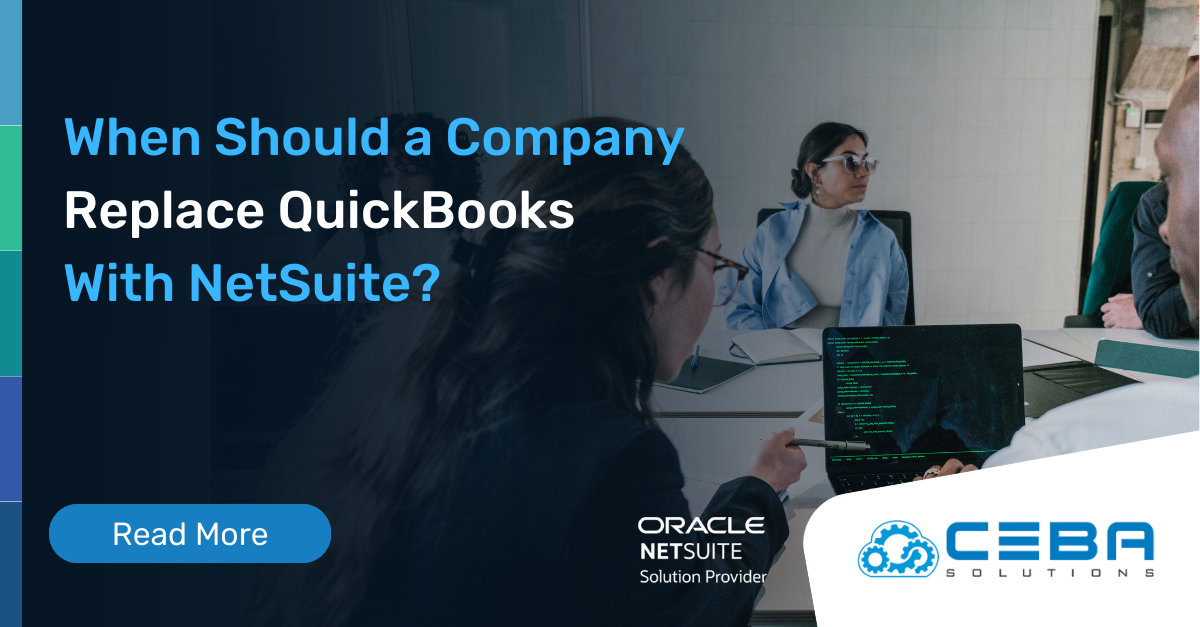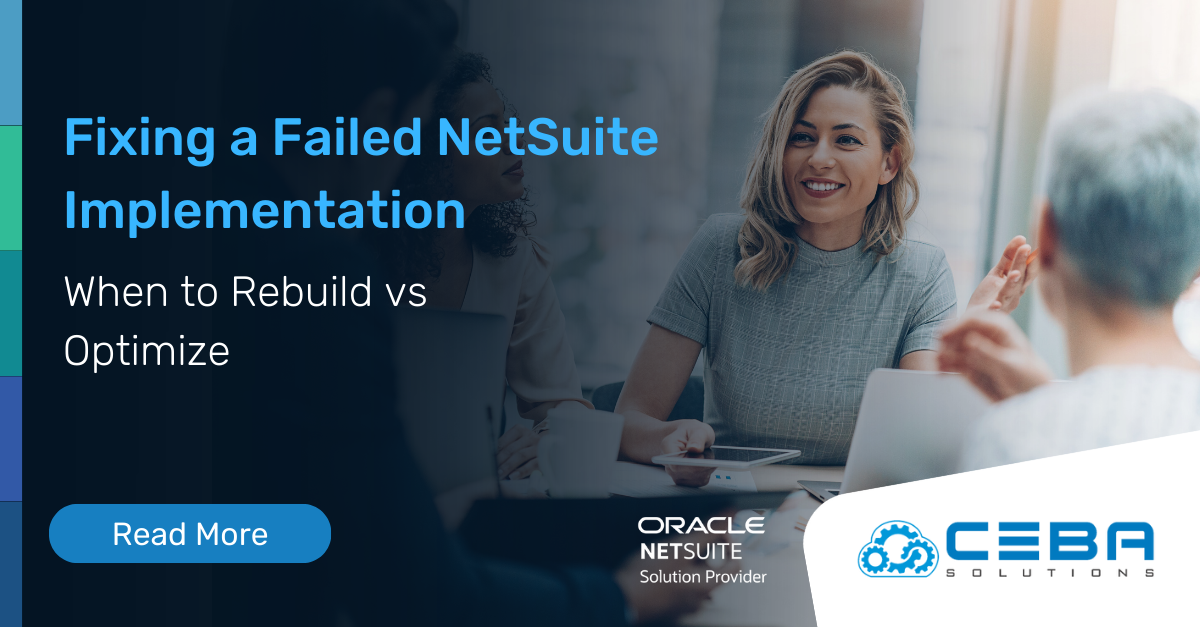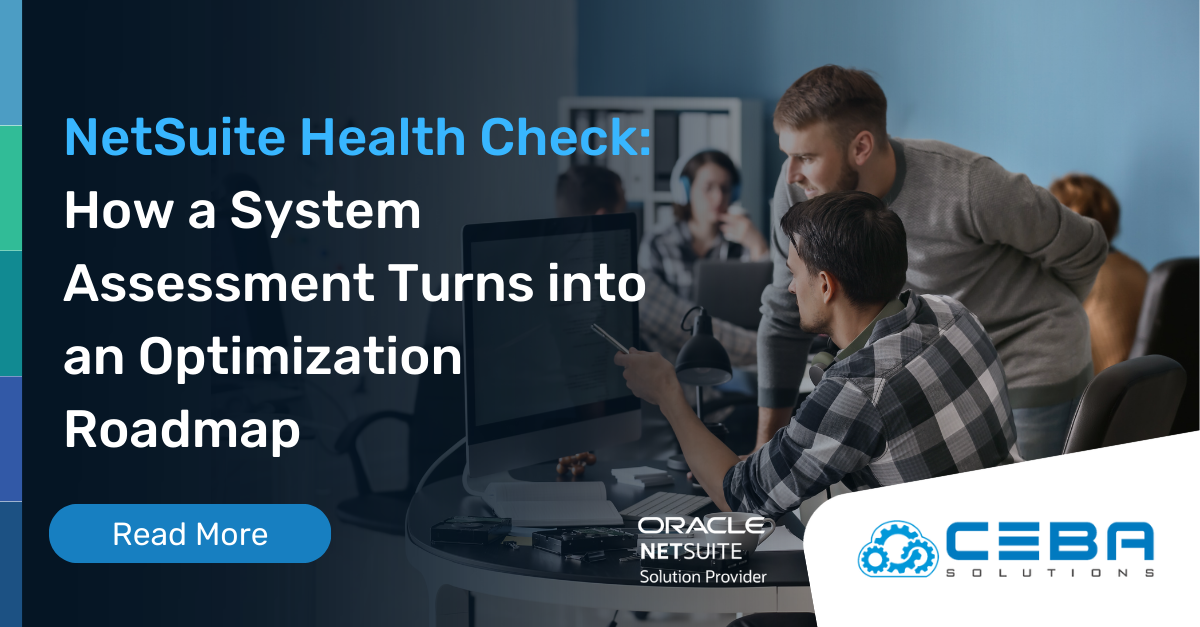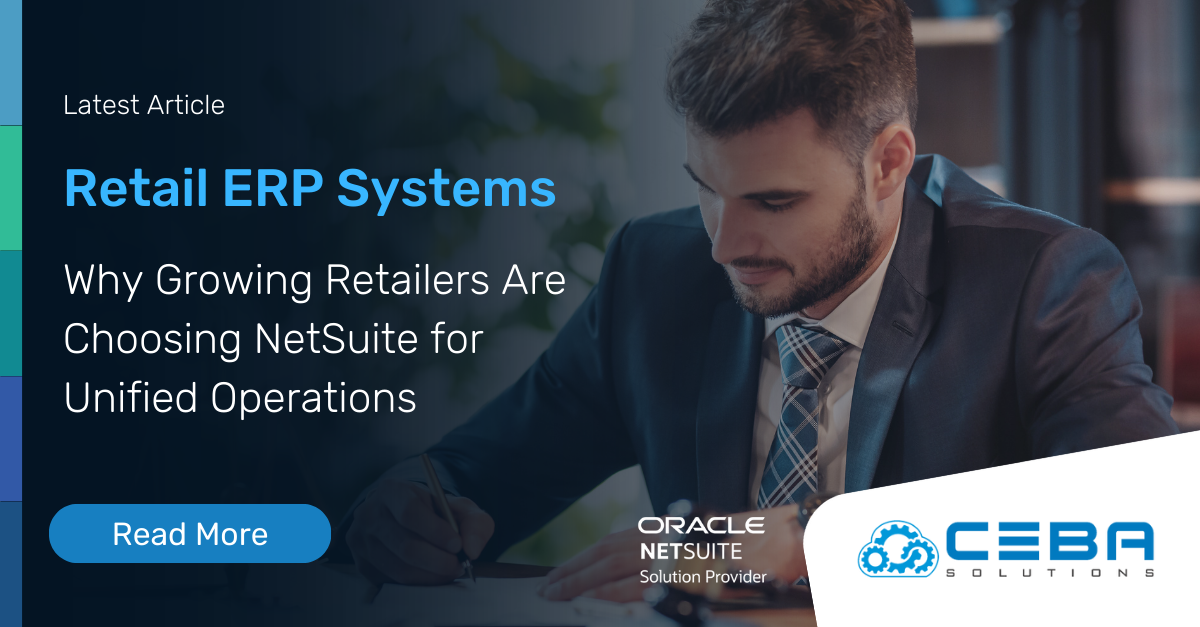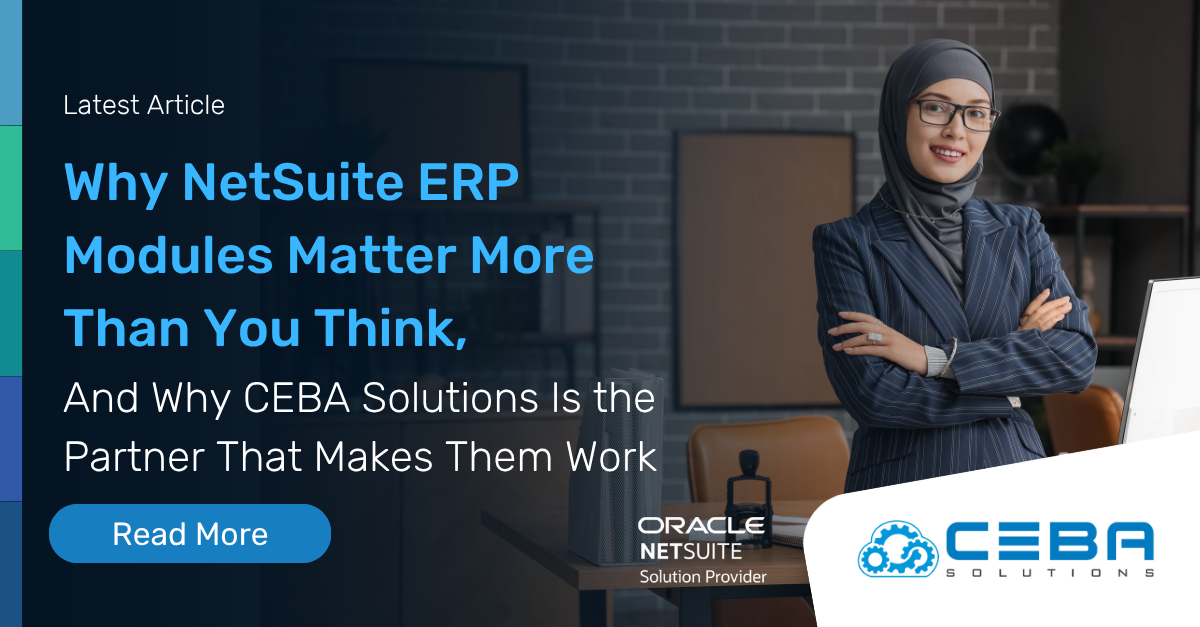.png)
Overcoming Manufacturing Challenges with NetSuite MRP: A Detailed Guide
Overcoming Manufacturing Challenges with NetSuite MRP: A Detailed Guide
In today's competitive manufacturing landscape, businesses need to optimize their production processes to stay ahead. NetSuite MRP (Material Requirements Planning) is a powerful tool that enables manufacturers to streamline their operations, reduce costs, and improve efficiency. This article will introduce you to NetSuite MRP, its key features, and how it can transform your manufacturing business.
Why Manufacturers are Turning to Cloud MRP
In recent years, more and more manufacturers are turning to cloud-based Material Requirements Planning (MRP) systems for their production management needs. Cloud MRP solutions offer numerous benefits over traditional on-premise solutions, including cost-effectiveness, scalability, flexibility, integration, and security. As the manufacturing industry becomes more competitive and complex, cloud MRP has emerged as a game-changer for companies looking to streamline their operations, reduce costs, and improve efficiency. In this article, we will explore the reasons why manufacturers are turning to cloud MRP and the advantages it offers over traditional MRP solutions.
Cost-effectiveness
The cost-effectiveness of cloud MRP solutions is a major driver behind the adoption of cloud-based manufacturing software by manufacturers. With traditional on-premise solutions, manufacturers are required to invest in expensive hardware and IT personnel to set up and maintain the software. This can be a significant financial burden for small and medium-sized businesses.
Cloud MRP solutions eliminate the need for such investments, allowing manufacturers to access the software through a web browser and run it on servers hosted by the vendor. Additionally, maintenance and software updates are automatically managed by the vendor, saving manufacturers the time and costs associated with performing these tasks themselves. As a result, manufacturers can realize significant cost savings and allocate more resources towards their core business activities.
Scalability
Another major benefit of cloud-based MRP solutions is scalability. As manufacturers grow and expand their operations, their MRP needs can change dramatically. With a traditional on-premise MRP system, upgrading or expanding the system can be expensive and time-consuming, requiring significant investments in hardware and IT personnel.
However, with cloud-based MRP solutions, manufacturers can easily scale their system up or down as their business needs change. This is because cloud solutions are designed to be highly scalable, allowing manufacturers to quickly and easily add or remove users, modules, or other resources as needed. As a result, manufacturers can avoid the expense and complexity of having to replace their entire MRP system every time their business needs change, enabling them to focus on growth and innovation.
Flexibility
Cloud MRP solutions offer flexibility to manufacturers. With the ability to access the system from anywhere with an internet connection, employees can work remotely and collaborate in real-time across different teams and locations. This can lead to increased productivity and faster decision-making, as team members can quickly share data and collaborate on tasks without being limited by physical location.
Additionally, cloud MRP solutions often offer mobile apps, allowing users to access the system on their smartphones or tablets, further increasing flexibility and mobility. The ability to work flexibly and remotely can also contribute to employee satisfaction and work-life balance, which can result in higher retention rates and lower turnover costs for manufacturers.
Simpler Integration
The ability to seamlessly integrate with other cloud-based applications provides manufacturers with a more comprehensive and streamlined solution, allowing them to manage their IT ecosystem more efficiently. With cloud MRP, manufacturers can easily integrate their accounting and customer relationship management (CRM) software with their MRP system, providing a holistic view of their business operations. This allows for greater automation of key business processes, reducing manual entry and increasing data accuracy. Additionally, integration with other cloud-based applications can help manufacturers to leverage data insights to make better decisions and drive growth.
Security
Security is a top concern for any business, and cloud MRP solutions offer robust security features to protect sensitive data. Cloud MRP providers implement advanced data encryption methods to secure data in transit and at rest, ensuring that unauthorized parties cannot access sensitive information. Additionally, cloud MRP solutions offer access controls to limit access to specific data and features to authorized personnel only. Disaster recovery features, such as backup and restore capabilities, are also available in cloud MRP solutions to ensure business continuity in the event of unexpected data loss or system downtime. The cloud-based model also ensures that the system is always up-to-date with the latest security patches and features, providing an added layer of protection against potential cyber threats.

Download the Ultimate Guide to Oracle NetSuite
Learn why NetSuite is the #1 Cloud ERP for Small and Mid Size Businesses Focused on Unlocking Growth. Download the Guide
Understanding NetSuite MRP and its Key Features
A Material Requirements Planning (MRP) is a system used to manage the manufacturing process by balancing production capacity with material requirements. NetSuite MRP takes this concept further by integrating it with its comprehensive suite of tools, specifically designed for manufacturers.
NetSuite Advanced Manufacturing
NetSuite Advanced Manufacturing is a comprehensive module that enables manufacturers to plan, schedule, and execute manufacturing operations more efficiently and productively. The module provides a range of advanced tools for managing complex production processes, including detailed production scheduling and capacity planning, finite and infinite scheduling, and constraint-based scheduling.
NetSuite Work Orders and Assemblies
NetSuite Work Orders and Assemblies is another essential module that streamlines the production process by enabling manufacturers to efficiently manage work orders and assemblies. This module provides real-time visibility into production workflows, including work order status and progress tracking, so that manufacturers can optimize the use of resources and ensure timely delivery of products. With this module, manufacturers can quickly create and manage work orders, track materials and labor costs, and automatically generate work orders based on sales orders and other demand signals.
NetSuite WIP and Routing
NetSuite WIP and Routing is a module that helps manufacturers optimize resource utilization and reduce bottlenecks in the production process. The module enables real-time tracking of work-in-progress (WIP) across the entire production cycle, providing visibility into production status, inventory levels, and resource utilization. It also allows manufacturers to manage production routing more effectively, ensuring that production tasks are assigned to the right resources at the right time to minimize lead times and maximize throughput.
NetSuite Bill of Materials
NetSuite Bill of Materials is a module that helps manufacturers create and manage bills of materials (BOMs) more accurately, enabling them to streamline inventory management and plan material requirements more effectively. The module provides a centralized repository for managing all BOM data, including component lists, revision history, and costing information. It also supports multiple BOM versions and configurations, enabling manufacturers to quickly adapt to changing customer requirements or product variations. With this module, manufacturers can gain better control over inventory levels, reduce waste, and improve production efficiency.
Implementing NetSuite MRP: A Step-by-Step Guide
Implementing NetSuite MRP for your manufacturing business requires careful planning and execution to ensure a successful outcome. Here are the steps you should follow:
Choosing the appropriate NetSuite Manufacturing Edition

Work with a NetSuite Partner to choose the appropriate NetSuite Manufacturing Edition tailored to your specific needs and requirements. This is a critical step as it will determine the level of functionality and features you will have access to in NetSuite MRP. Consider the size of your business, the complexity of your manufacturing processes, and the number of users who will be accessing the system.
Implementing NetSuite SuiteSuccess Manufacturing
Implement the NetSuite SuiteSuccess Manufacturing package, which includes pre-built configurations, workflows, and reports to jumpstart your MRP implementation. This package provides a foundation for your MRP system, making it easier and faster to get up and running.
Customizing your NetSuite MRP system
Customize your NetSuite MRP system to meet your specific needs. Once you have the basic system in place, you can customize it further to match your unique manufacturing processes and requirements. This could involve adding custom fields, creating new workflows, or integrating additional third-party applications.
Training your employees on how to use NetSuite MRP effectively
Train your employees on how to use NetSuite MRP effectively. Proper training is crucial to ensure that your employees can use the system efficiently and get the most out of its features. NetSuite provides various training resources, including online courses, videos, and documentation, to help your employees get up to speed quickly.
Real-World Success Stories: How Companies Have Benefited from NetSuite MRP
SWIR Visions Systems
SWIR Vision Systems, a company that manufactures infrared cameras, needed a system to track and process its sales orders as it transitioned from processing one or two orders per month to serving a larger audience.
The company chose NetSuite Cloud ERP to keep track of quotes, sales orders, billing, and invoicing, but needed help implementing the system. They turned to CEBA Solutions, who provided setup help, training, and customizations tailored to SWIR Vision Systems' needs.
NetSuite's integration of the entire sales order process has helped the company keep track of its orders and track their history. The company plans to expand its use of NetSuite's functionality as it continues to grow.
"Implementing NetSuite MRP has been a game-changer for SWIR Vision Systems. It has provided the necessary infrastructure to track sales orders, streamline workflows, and manage billing and invoicing, all in one centralized system. With NetSuite MRP, SWIR Vision Systems is now well-equipped to handle growing order volumes and support future growth." - Zabe Siddique, President at CEBA Solutions.
Conclusion
Cloud-based MRP solutions offer numerous benefits over traditional on-premise solutions, including cost-effectiveness, scalability, flexibility, integration, and security. NetSuite MRP integrates with a comprehensive suite of tools specifically designed for manufacturers, enabling them to plan, schedule, and execute manufacturing operations more efficiently and productively. The implementation of NetSuite MRP requires careful planning and execution to ensure a successful outcome. Real-world success stories, such as SWIR Vision Systems, demonstrate how NetSuite MRP has been a game-changer for manufacturing businesses, providing the necessary infrastructure to track sales orders, streamline workflows, and manage billing and invoicing, all in one centralized system.
NetSuite MRP FAQs
How does NetSuite MRP differ from traditional MRP systems?
NetSuite MRP is a cloud-based system that offers numerous benefits over traditional on-premise MRP systems. Firstly, it eliminates the need for expensive hardware and IT personnel to set up and maintain the software, making it more cost-effective. Secondly, it is highly scalable, allowing manufacturers to easily add or remove users, modules, or other resources as needed. Thirdly, it offers flexibility to work remotely and collaborate in real-time across different teams and locations. Fourthly, it provides easier integration with other cloud-based applications, enabling manufacturers to manage their IT ecosystem more efficiently. Finally, it offers robust security features to protect sensitive data, such as advanced data encryption methods and access controls, ensuring that unauthorized parties cannot access sensitive information.
What are the benefits of implementing NetSuite Advanced Manufacturing?
NetSuite Advanced Manufacturing is a comprehensive module that enables manufacturers to plan, schedule, and execute manufacturing operations more efficiently and productively. It provides a range of advanced tools for managing complex production processes, including detailed production scheduling and capacity planning, finite and infinite scheduling, and constraint-based scheduling. The benefits of implementing NetSuite Advanced Manufacturing include increased visibility into production workflows, optimized use of resources, timely delivery of products, better control over inventory levels, reduced waste, and improved production efficiency.
How can NetSuite MRP help in reducing manufacturing costs?
NetSuite MRP can help in reducing manufacturing costs by providing a more streamlined and efficient production process. It enables manufacturers to optimize their production schedules, plan material requirements more effectively, track inventory levels in real-time, and manage resources more efficiently. This can lead to reduced lead times, lower inventory costs, and higher productivity, resulting in significant cost savings for the manufacturer.
What is the process of setting up NetSuite Work Orders and Assemblies?
The process of setting up NetSuite Work Orders and Assemblies involves the following steps:
- Create a work order for each production run, specifying the quantity to be produced, the required materials, and the routing sequence.
- Assign resources to each work order, including labor and machine resources.
- Track the progress of each work order, including the amount of time spent on each operation, the materials used, and the status of each work order.
- Monitor inventory levels in real-time, updating the system with the actual usage of materials and the actual production quantities.
- Generate reports on work order status, resource utilization, and production efficiency.
How can NetSuite MRP improve my production efficiency?
NetSuite MRP can improve production efficiency in several ways. Firstly, it provides real-time visibility into production workflows, enabling manufacturers to optimize the use of resources and reduce bottlenecks. Secondly, it enables accurate planning and scheduling of production runs, ensuring that the right materials and resources are available when needed. Thirdly, it allows for better control over inventory levels, reducing waste and ensuring timely delivery of products. Fourthly, it streamlines the production process, eliminating manual processes and reducing the potential for errors. Finally, it enables collaboration and real-time communication between different teams and locations, increasing productivity and enabling faster decision-making.





